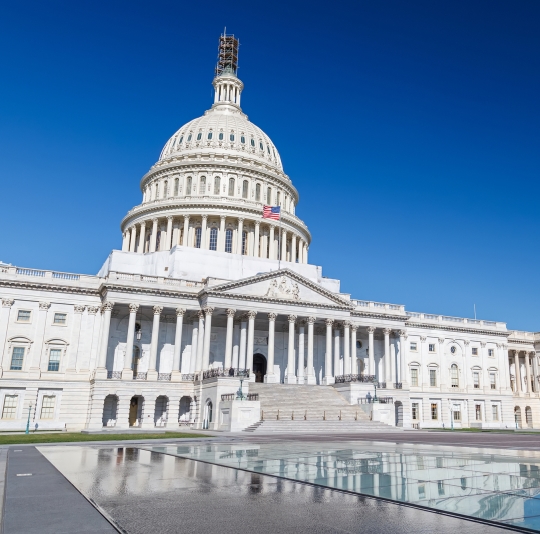In the News
Virginia Dems in Congress ask Trump for flexibility on relief money for state and local governments
RICHMOND TIMES DISPATCH,
April 7, 2020
RICHMOND TIMES DISPATCH: Virginia Dems in Congress ask Trump for flexibility on relief money for state and local governments
By Michael Martz Virginia Democrats in Congress have asked President Donald Trump’s administration for guidance to state and local governments that gives them more flexibility in spending an estimated $3.3 billion in emergency relief from the stimulus package signed into law in late March. A letter signed by Virginia’s senators and seven of its congressional representatives urges Treasury Secretary Steven Mnuchin for broad guidance to state and local governments that would allow them to use the money to address “unbudgeted costs that arise from unexpected revenue declines,” as well as new spending aimed directly at combating the coronavirus pandemic. “Unbudgeted costs can also come in the form of unexpected and precipitous revenue declines that would otherwise force budget cuts, thus diminishing necessary services that states and localities are providing to help people during the pandemic,” they said in the two-page letter delivered on Tuesday. The delegation warned that state and local governments rely on sales taxes and user fees that are declining sharply as people cut discretionary spending and use of public transit. “The cost of these revenue declines will manifest in constitutionally required budget cuts to balance budgets,” they said. “Allowing this to happen will exacerbate both the health and economic crises in this country.” The letter comes a day after Gov. Ralph Northam’s administration outlined a strategy for the pending state budget. The plan would essentially freeze almost $3 billion in new or discretionary spending in the two-year budget that the General Assembly approved on March 12, the same day the governor declared a public health emergency. Northam already had frozen hiring and directed state agencies to eliminate discretionary spending in the current fiscal year that ends June 30. The state now expects a $1 billion revenue loss in the final quarter that began on April 1. State finance officials also expect revenues to plummet by at least $1 billion in each of the next two fiscal years. Secretary of Finance Aubrey Layne met with members of Virginia’s congressional delegation on Thursday night. He asked for their help in persuading the Treasury Department to give states more flexibility in how they use money from the $150 billion State and Local Coronavirus Relief Fund that was part of the $2.2 trillion stimulus package adopted on March 28. “We’re asking them for the leeway to offset the impact of business closings,” Layne said in an interview Tuesday. The aid includes an estimated $1.8 billion to the state and $1.5 billion to local governments, although Fairfax County — with more than 1.1 million residents — is the only locality with a large-enough population to apply directly for relief. The letter is signed by Sens. Tim Kaine and Mark Warner, both Democrats, and the seven Democrats in the state’s 11-member delegation to the U.S. House of Representatives: Reps. Bobby Scott, 3rd District; Donald McEachin, 4th; Abigail Spanberger, 7th; Elaine Luria, 2nd; Donald Beyer, 8th; Jennifer Wexton, 10th; and Gerald Connolly, 11th. A spokeswoman for Kaine said the delegation also asked Republicans in Virginia’s delegation to sign the letter, but none did. The Roanoke Times reported Tuesday that Virginia’s four congressional Republicans wrote separately to Mnuchin to seek flexibility for Northam and local government officials to assist nonprofit organizations, such as food banks, in helping communities cope with the fallout from the coronavirus crisis. “Right now, the most important thing is defeating this virus and keeping people safe and making sure we respond to the coronavirus crisis,” Rep. Ben Cline, R-6th, said in the report. The Roanoke Times also reported that Rep. Morgan Griffith, R-9th, said the stimulus package, the CARES Act, was not intended to “bail out the states.” “We’re trying to help folks, not try to figure out each individual state’s spending desires and needs at this point,” Griffith told the paper. The Northam administration and Democrats in Virginia’s congressional delegation say the funding guidance should be broad to allow the state to forestall cuts in services and programs because of revenue shortfalls caused by the pandemic’s dire effects on business. “When you close a business, that’s pretty direct — they can’t pay [taxes],” Layne said. |



